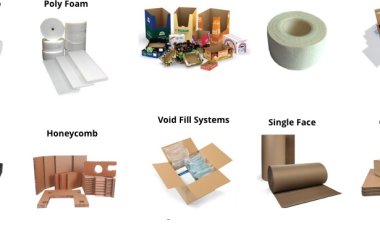Silicon Carbide in EVs: Market Analysis & Future Prospects
Explore the future prospects of silicon carbide in EVs. Learn about its applications, market trends, key players, and growth opportunities shaping the EV market.

Future Prospects of Silicon Carbide in Electric Vehicles: A Market Analysis
The rapid shift towards electrification in the automotive sector has ushered in new materials and technologies to enhance the performance and efficiency of electric vehicles (EVs). Among these innovations, silicon carbide (SiC) has emerged as a transformative material, reshaping the power electronics landscape for EVs. Its unique properties, including high thermal conductivity, exceptional efficiency in high-temperature conditions, and minimal power losses, make it a critical component in modern EV systems.
Download a sample PDF 250+ Pages of Silicon Carbide Market Report, published by Vantage Market Research.
![]()
The Role of Silicon Carbide in Electric Vehicles
Power Electronics in EVs
Power electronics are the backbone of electric vehicles, responsible for converting and managing electrical energy efficiently. In EVs, key systems such as inverters, onboard chargers (OBCs), and DC-DC converters rely heavily on power electronics.
Why Silicon Carbide?
Traditional silicon-based semiconductors have limitations in efficiency and performance, especially under high-power and high-temperature conditions. Silicon carbide outperforms silicon with the following advantages:
- Higher Efficiency: SiC reduces power losses by up to 50%, increasing energy conversion efficiency.
- Compact Designs: The material's ability to handle higher voltages and temperatures allows for smaller and lighter components.
- Extended Range: Improved efficiency translates to longer driving ranges for EVs.
These attributes position silicon carbide as a game-changer in the EV industry.
Applications of Silicon Carbide in EV Systems
Inverters
Inverters are critical for converting DC power from the battery into AC power to drive the motor. Silicon carbide-based inverters improve efficiency and allow for higher switching frequencies, resulting in smoother and more responsive performance.
Onboard Chargers (OBCs)
SiC-based OBCs enable faster charging times while reducing energy losses. This capability is particularly valuable as the EV market pushes for ultra-fast charging solutions.
DC-DC Converters
These converters regulate voltage between the battery and other components. Silicon carbide’s thermal stability ensures reliability in high-stress environments, crucial for EV operation.
Battery Management Systems (BMS)
As batteries become more sophisticated, SiC is increasingly used to improve BMS efficiency, ensuring optimal performance and safety.
Market Trends Driving Silicon Carbide Adoption in EVs
Accelerating EV Sales
The global shift toward sustainable transportation is driving exponential growth in EV adoption. According to industry reports, EV sales are projected to account for over 50% of new car sales by 2034. This growth directly boosts demand for advanced power electronics, with silicon carbide playing a pivotal role.
Government Policies and Incentives
Many countries are implementing stringent emission regulations and offering incentives to promote EV adoption. These policies encourage automakers to integrate SiC technology to meet performance and efficiency standards.
Investment in Charging Infrastructure
The expansion of charging networks is a crucial enabler of EV adoption. Silicon carbide is pivotal in developing efficient charging stations, ensuring faster energy delivery with minimal losses.
Innovations in SiC Manufacturing
Advancements in SiC wafer production and fabrication are making the material more accessible and cost-effective. Leading manufacturers are scaling up production, further accelerating its adoption.
Key Players in the Silicon Carbide Market for EVs
The market for silicon carbide is highly competitive, with several key players driving innovation and production:
- Wolfspeed (Cree Inc.): A leader in SiC wafer production, Wolfspeed supplies high-quality materials for EV power electronics.
- STMicroelectronics: Renowned for its SiC MOSFETs and diodes, the company plays a significant role in EV powertrain systems.
- Infineon Technologies: Offers advanced SiC solutions for inverters and chargers, catering to the EV industry's evolving needs.
- ON Semiconductor: Focuses on energy-efficient SiC products for EV applications.
Future Growth Opportunities for Silicon Carbide in EVs
Integration in Autonomous Electric Vehicles
The rise of autonomous EVs presents new challenges for power electronics, including higher energy demands for sensors, processors, and communication systems. Silicon carbide's efficiency and reliability make it a key enabler for these vehicles.
Expansion in Commercial EVs
The adoption of electric buses, trucks, and other commercial vehicles is growing. These vehicles require high-capacity power electronics, where silicon carbide can enhance performance and efficiency.
Development of Ultra-Fast Charging Solutions
As consumer demand for reduced charging times increases, silicon carbide will play a vital role in achieving ultra-fast charging capabilities. This development is expected to drive widespread adoption in charging infrastructure.
Growth in Emerging Markets
Emerging economies in Asia-Pacific, Latin America, and Africa are witnessing rapid urbanization and EV adoption. Silicon carbide manufacturers have significant opportunities to tap into these high-growth regions.
Challenges Facing the Silicon Carbide Market
High Initial Costs
The production of silicon carbide components remains expensive due to complex manufacturing processes. While costs are gradually decreasing, they still pose a barrier for widespread adoption.
Technical Barriers
Designing and integrating SiC-based systems require specialized expertise, which may slow down implementation in some markets.
Competition from Alternative Materials
Gallium nitride (GaN) is another promising material in the power electronics sector, offering comparable benefits to silicon carbide. This competition may influence market dynamics.
Environmental Benefits of Silicon Carbide in EVs
The adoption of silicon carbide aligns with global sustainability goals:
- Lower Carbon Emissions: SiC enhances energy efficiency, reducing the carbon footprint of EVs.
- Waste Reduction: SiC's durability extends the lifespan of components, minimizing waste.
- Support for Renewable Energy: Efficient SiC-based chargers integrate seamlessly with renewable energy sources, promoting a cleaner energy ecosystem.
Silicon Carbide Market Projections for EVs
The silicon carbide market in EV applications is poised for remarkable growth:
- Market Size: Valued at approximately USD 4.21 billion in 2024, the market is projected to exceed USD 12.56 billion by 2034.
- CAGR: The market is expected to grow at a CAGR of over 11.56% during the forecast period.
Key factors driving this growth include advancements in SiC technology, increasing EV sales, and the expansion of charging infrastructure.
Access the Full Report Silicon Carbide Industry Trends and Projections Now
Conclusion
The future of silicon carbide in electric vehicles is undeniably bright. Its unique properties and ability to enhance efficiency, performance, and sustainability make it an indispensable material for the next generation of EVs. As the industry continues to innovate, silicon carbide will play a central role in overcoming challenges and unlocking new opportunities.
From powering ultra-fast chargers to enabling longer EV ranges, silicon carbide is at the heart of the electrification revolution. By 2030, its impact on the automotive sector will be profound, shaping a cleaner, more efficient, and sustainable future for transportation.
Automakers, technology providers, and policymakers must embrace this transformative material to ensure the successful realization of global electrification goals. Silicon carbide is not just a material of today—it is the foundation for the future of electric vehicles.
Check out Vantage Market Research's comprehensive Silicon Carbide Market study for a thorough examination of industry projections, major players, and geographical trends.


















